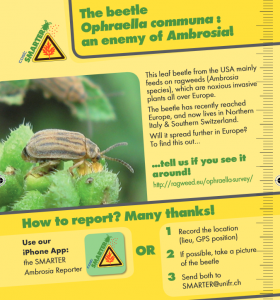Announcing the International Ragweed Day – June 27, 2015
Based on the proposition of allergologist Prof. Dr. Kristof Nekam and Dr. Tamas Komives the General Assembly of IRS (held in Ascona, Switzerland on October 6, 2011) proclaimed the first Saturday of the summer The International Ragweed Day (IRD) to increase understanding and awareness of the problem this invasive weed causes all over the world. The day was chosen because it is early in the growing season of the plant thereby gives enough time for preparations and actions.
We are inviting our members to take part in the organizing work.

